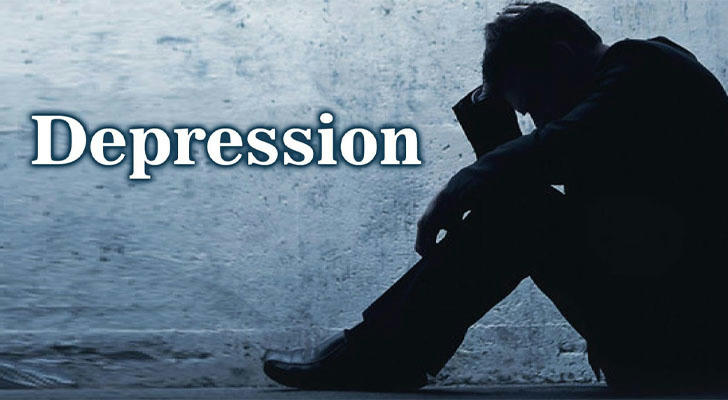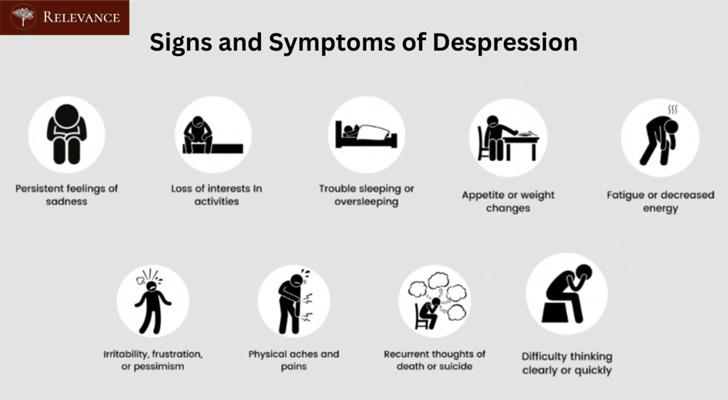Beating Depression: A Light of Hope for Americans with Depression 🌟
Are you or someone you know struggling with depression? You're not alone. Over 280 million people globally struggle with depression, making it a leading cause of disability worldwide. In the US, major depressive disorder affects approximately 17.3 million adults annually. The pain and suffering caused by depression are profound, but there is hope. Effective treatments and coping strategies can significantly improve the quality of life for those living with depression.

The Scope and Severity of Depression
Depression is a common but serious medical illness that negatively impacts how you feel, think, and handle daily activities. It's more than just feeling sad or going through a rough patch. Symptoms can include persistent sadness, loss of interest in previously enjoyed activities, changes in appetite and sleep patterns, fatigue, feelings of worthlessness, and even thoughts of suicide.
Major depressive disorder is the leading cause of disability in the US for those aged 15 to 44. It can affect anyone, regardless of age, gender, or socioeconomic status. The World Health Organization (WHO) reports that depression is a major contributor to the global burden of disease. The financial toll is also significant, with depression costing the US economy over $210 billion annually in medical expenses and lost productivity.
Understanding Depression and Its Impact
Depression can affect anyone. Factors such as genetics, brain chemistry, life circumstances, and trauma can contribute to its development. It's important to recognize the symptoms and seek help early.
Common Symptoms of Depression:
Persistent feelings of sadness, anxiety, or emptiness.
Loss of interest or pleasure in hobbies and activities.
Significant weight loss or gain; changes in appetite.
Insomnia or hypersomnia.
Fatigue or loss of energy.
Feelings of worthlessness or excessive guilt.
Difficulty thinking, concentrating, or making decisions.
Recurrent thoughts of death or suicide.
Effective Treatment Options
Depression is treatable. According to the American Psychiatric Association, nearly 80% of people with depression improve with treatment. Treatment options include psychotherapy, medication, lifestyle changes, and other therapeutic approaches.
Psychotherapy
Psychotherapy, or talk therapy, is a common treatment for depression. It involves working with a mental health professional to explore thoughts, feelings, and behaviors. Cognitive-behavioral therapy (CBT) helps individuals identify and change negative thought patterns. Interpersonal therapy (IPT) focuses on improving relationships and social functioning. Psychodynamic therapy explores how past experiences influence current feelings. These approaches are evidence-based and can be highly effective for treating depression.
Medication
Antidepressant medications can help balance brain chemicals and improve mood. Selective serotonin reuptake inhibitors (SSRIs) and serotonin-norepinephrine reuptake inhibitors (SNRIs) are commonly prescribed. It's important to work closely with a healthcare provider to find the right medication and dosage. For instance, fluoxetine and sertraline are frequently used SSRIs. The FDA has approved numerous antidepressants, and healthcare providers consider symptoms and medical history when prescribing them.
Lifestyle Changes
Lifestyle changes can have a significant impact on managing depression. Regular physical activity, a balanced diet, sufficient sleep, and stress management techniques can all contribute to better mental health.
| Lifestyle Change | Description | Benefits |
|---|---|---|
| Regular Exercise | Engaging in physical activity for at least 30 minutes most days of the week. | Reduces symptoms of depression, boosts mood, and improves overall health. |
| Balanced Diet | Consuming a diet rich in fruits, vegetables, whole grains, and lean proteins. | Supports brain function, provides essential nutrients, and stabilizes mood. |
| Sleep Hygiene | Establishing a consistent sleep schedule and creating a restful sleep environment. | Improves sleep quality, enhances mood regulation, and increases energy levels. |
| Stress Management | Practicing mindfulness, meditation, deep breathing, and other relaxation techniques. | Reduces stress hormones, lowers anxiety levels, and promotes emotional well-being. |

Other Therapies
Brain stimulation therapies like Transcranial Magnetic Stimulation (TMS) and Electroconvulsive Therapy (ECT) are also available for individuals who do not respond to other treatments. TMS uses magnetic fields to stimulate nerve cells in the brain, while ECT involves passing an electrical current through the brain to induce a seizure. These therapies are typically used in cases of severe depression that haven't responded to other treatments.
Real-Life Success Stories
Many individuals have successfully managed their depression through a combination of treatments. For example, Sarah, a 35-year-old professional, struggled with depression for years. After trying different approaches, she found relief through a combination of CBT and medication. "It wasn't easy, but with the right help and support, I've been able to regain control of my life," Sarah shares. Another example is John, who turned his life around through consistent exercise and therapy. He now advocates for mental health awareness to help others.
| Name | Age | Approach | Outcome |
|---|---|---|---|
| Sarah | 35 | CBT + Medication | Regained control of her life |
| John | 42 | Exercise + Therapy | Became a mental health advocate |
Practical Steps for Managing Depression
Seeking Professional Help
Consulting a mental health professional is a crucial step in treating depression. They can provide an accurate diagnosis and recommend appropriate treatment options. You can find mental health professionals through referrals from primary care physicians, online directories, or community mental health centers.
Creating a Support Network
Building a support network of family, friends, and support groups can provide emotional assistance and practical help. Support groups allow individuals to share experiences and coping strategies with others who understand what they're going through.
Establishing a Routine
Maintaining a daily routine can provide structure and a sense of normalcy. Including regular meal times, exercise, and sleep schedules can help stabilize mood and improve overall well-being.
Tracking Progress
Keeping a journal or using mental health apps to track symptoms, mood changes, and progress can help identify patterns and triggers. This information can be valuable in adjusting treatment plans and celebrating small victories.

Conclusion
Depression is a serious but treatable mental health condition. It affects millions of Americans but with the right treatment and support, individuals can experience significant improvement in their symptoms and quality of life. If you or someone you know is struggling with depression, please seek help from a healthcare provider. There is no shame in seeking treatment, and it's a crucial step toward recovery and a healthier future. You don't have to face depression alone—help and hope are available.
